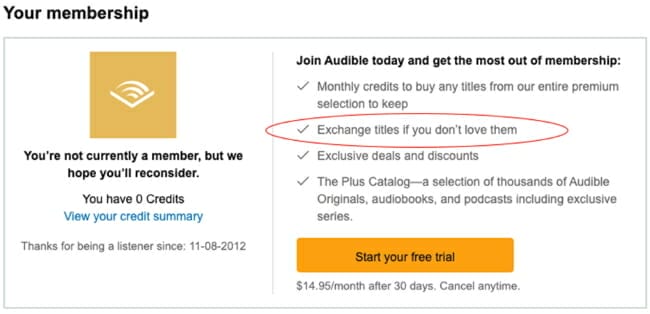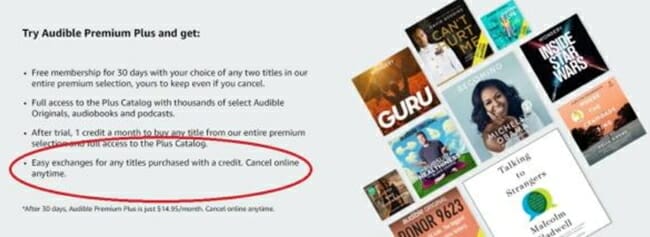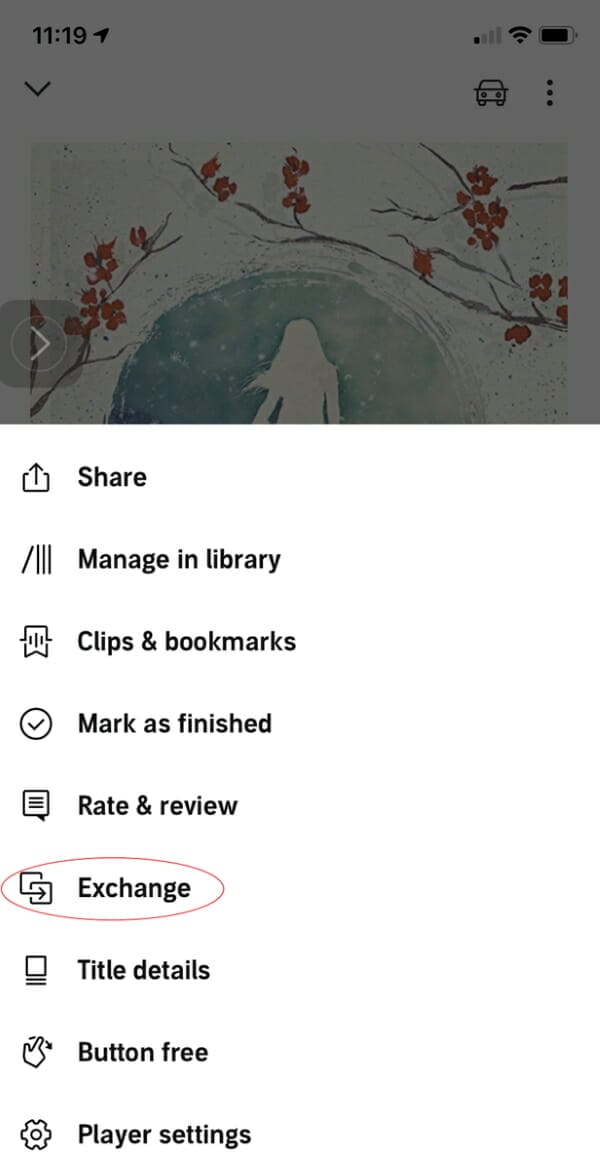Audible, the dominant retailer of audiobooks, has been actively encouraging customers to return audiobooks in exchange for new audiobooks.
By David Kudler
Perhaps you have seen grumbling on social media and across the internet about #Audiblegate and Audible’s return policy. In case you haven’t been following the controversy, let me tell you what it’s about – and why all independent publishers should care.
What’s happening is that Audible, the dominant retailer of audiobooks in the US, has been actively encouraging their customers to return their audiobooks in exchange for new audiobooks. The reader/listener gets a new book at no cost. No questions asked, regardless of how much of the first book they listened to (even if they finished it), up to a year after they purchased it. Sounds great, right?
The problem is that when the first book gets returned, the royalties earned by the narrator, producer, and author of that book get pulled back as well. So the listener gets to enjoy our work — but we don’t get paid.
Audiobooks are great
Audiobooks are a wonderful format for us to expand the availability of our work to new audiences, and to make our books more convenient for the readers we already have. The audiobook market has continued to grow at a rapid rate, whether folks are looking to fill commute time or divert themselves during the current pandemic. So many of us small and self-publishers are tapping into that potential.
There are two major challenges to entering the audiobook market:
Audiobooks are technically difficult and expensive to produce.One retailer has a relative monopoly on the US audiobook market — at least as it is available to American indie publishers.
Audiobooks are expensive
Audiobooks aren’t cheap to create. A full-length 300-page novel will translate to a twelve- to fifteen-hour audiobook. That audiobook needs to be narrated by one or more voices. Those voices must be recorded with high-quality equipment in a prepared space free of background sound. The recordings — which will often take two or more times as long as the final product — must be edited and mastered. The whole process can take anywhere from three to ten times as long as the finished recording.
This all means that audiobooks can cost a lot to produce. I have narrated and produced my own audiobooks — and I’ve done so for others. In addition to being an author and a publisher, I’m a professionally trained voice actor with a recording space in my home that meets professional quality standards. But it still takes a lot of time for me to record, edit, and master an audiobook. I have costs to purchase and maintain equipment. And if I have to hire another narrator (for a book that needs a female narrator, say), I have to pay for their time and possibly the rental of studio time. That 15-hour audiobook can cost anywhere from two to six thousand dollars or more to produce — either in cash or (in a case like mine) in labor.
We pay those costs — not Audible. Not their parent company Amazon. The publishers incur the expenses. We expect those steep costs to be offset by sales.
Amazon’s Audible dominates the market
For most of us, the easiest way to produce an audiobook is through Audible’s ACX.com (Audible Creative eXchange). You can audition producers willing to take on your book, finding the right voice(s), working with them as they produce the audiobook, and then releasing the audiobook through ACX to both Audible and iTunes — which together account for something like 90% of the American market.
Audible offers your choice of either an exclusive royalty arrangement (which pays 40% of gross sales) or non-exclusive (which pays 25%). Given how dominant Audible/iTunes is, many of us opt for the exclusive agreement, which lasts seven years. (I often go the non-exclusive route and release “wide” through Author’s Republic or Findaway Voices — but that’s a conversation for another day.)
So, to recap: audiobooks cost the publisher a lot to produce, and many of us are locked into a relationship with Audible, trying to recoup and hopefully profit on our investment of time and money through sales.
Audible’s return policy benefits them at the creators’ expense
Here’s where Audible’s return policy becomes such a problem for us.
Audible has always had a fairly generous return policy: listeners can return an audiobook up to a year after purchasing it, no questions asked, in exchange for credit toward a new audiobook. Listened to the whole audiobook? Reviewed it? Listened to it again? No problem — here’s credit toward your next listen.
Of course, as I said, when Audible allows the return, the 40% that had been credited to the producer — typically around $5.00 for that full-length novel — suddenly becomes $0.00.
So that’s a bit of a problem from our point of view.
What makes it worse is that Audible’s reporting is completely opaque.
Here’s the sales data I got on ACX’s sales dashboard regarding my novel Risuko one day recently:

That’s a month-to-date report taken earlier this month. Not spectacular, but I haven’t promoted the book recently. (Have to do something about that!) The various “units” columns are different membership plans. Note there’s no indication of how much each unit might be worth to me — I have to wait until I’m actually paid to see that. ACX provides no further information.
A few days later, this is what that same report looked like:

Huh? Where did they go?
They got returned, of course. No indication why. No indication of whether the person listened to all of the book, half of the book, or none. These returns could have been from last year, not the ones purchased this month. Like Sergeant Schultz on Hogan’s Heroes, I know nothing.
Well, shoot. That sucks!
But wait. It gets worse.
I publish a number of audiobook series — both my own and those I’ve produced for other authors. My absolutely favorite thing to watch is when Book #1 in a series sells one day. Then the next day, it’s returned, and Book #2 is purchased with the same refunded credit. Then next day Book #2 gets returned and Book #3 purchased…. And so on, all of the way through the series. Or on to another book by the same author.
Clearly the listener enjoys the books. Clearly they’re listening to the entirety of each recording. And yet we make nothing — unless we’re fortunate enough for the listener to get off the merry-go-round on one of our titles, rather than going straight on from the last book in one of these series to one by someone else.
But wait! There’s more!
Lately, Audible has been actively promoting this “feature” to lure in new (or returning) customers. I used to have an active membership on Audible. Here’s what shows up on my account page:

Here’s what the membership promotion looks like on the Amazon mothership:

While I’m listening to an audiobook, if I tap on the three-dot information button, I’m presented with a number of options — prominently among them, EXCHANGE:

So Audible has apparently decided not only that their broken returns system isn’t a problem — it’s actually something they’re going to use to sell memberships. It’s not a bug, it’s a feature. This policy costs Audible/Amazon nothing. The cost is borne entirely by the creators of the product.
#Audiblegate
In the past few months, some ACX narrators, authors, and publishers have reported a steep increase in returns. Note that it’s almost impossible for us to quantify or document our losses, since we have no way of tracking how many there are, nor how much they’re costing us.
Mostly, we’d been suffering in silence — until thriller author/publisher Susan May published a post on what she dubbed #Audiblegate. Other authors, including science fiction bestseller Cory Doctorow and TheBookDesigner.com contributor Nate Hoffelder, spread the word.
A group of disgruntled authors, narrators, and producers has gathered on Facebook, sharing information and coordinating plans for how best to encourage our partner Audible to change its policy and improve its reporting. We’ve reached out to the Authors’ Guild for guidance, and we’ve done our best to boost the signal to our friends, family, and — especially — our readers. We want them to know that what may seem like a nice deal isn’t coming out of Audible’s largesse — it’s coming out of our pockets.
What next?
Here’s what you can do:
Don’t exchange audiobooks you’ve actually listened to.Let your friends and readers know not to exchange.
Join the conversation.
Photo: BigStockPhoto










